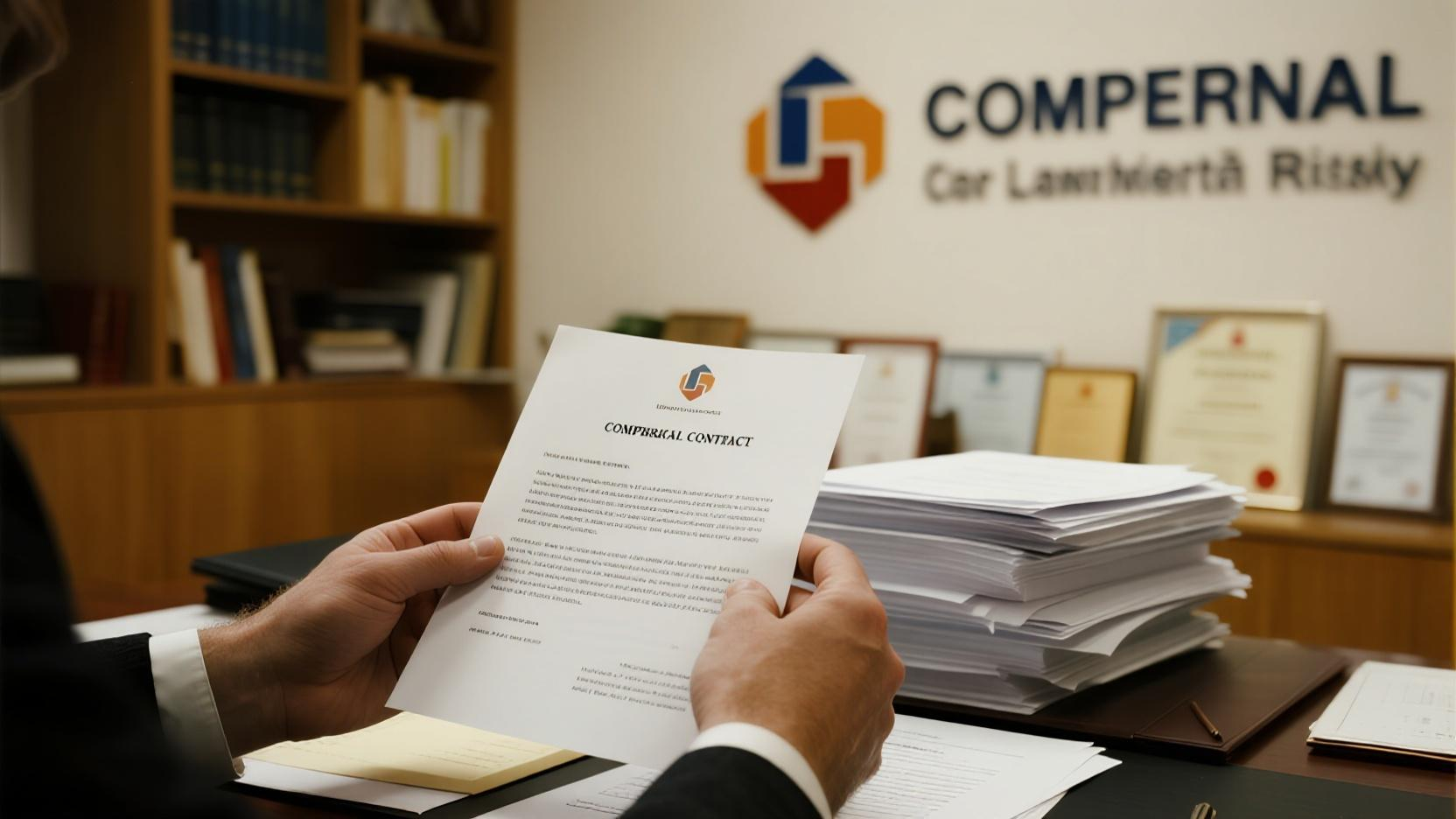Image Source: pexels
E-commerce businesses encounter various E-commerce Legal Risks and Preventive Contract Strategies that can disrupt operations and negatively impact profitability. Common challenges include compliance with data protection laws, intellectual property disputes, and consumer protection regulations. Ignoring these risks can lead to fines, criminal liability, or damage to the brand. Implementing preventive contract strategies provides a proactive approach to protect businesses from these potential consequences.
Key Takeaways
- Online stores must focus on keeping customer data safe and private.
- They should follow rules like GDPR and CCPA to avoid trouble.
- Writing simple Terms of Service and vendor deals stops arguments.
- Checking contracts often and being honest builds trust and follows rules.
- This helps avoid problems with the law and keeps things running well.
Identifying Key Legal Risks in E-commerce
E-commerce businesses face numerous legal risks that can disrupt operations and harm their reputation. Understanding these risks is essential for implementing effective preventive measures. Below are some of the most critical legal challenges in the e-commerce landscape.
Data Privacy and Security Challenges
Data privacy and security remain top concerns for e-commerce businesses. Companies must safeguard sensitive customer information while complying with global privacy regulations. Key challenges include:
- Data breaches: Unauthorized access to systems can result in the theft of sensitive data.
- Phishing: Social engineering attacks trick users into revealing personal information.
- Malware: Harmful software can steal data or damage systems.
Additionally, businesses often struggle with:
- Integration with third-party services, which may mishandle user data.
- Navigating complex global privacy laws, such as GDPR and CCPA.
- Keeping up with evolving regulations and ensuring user privacy.
Intellectual Property Protection
Protecting intellectual property is vital in the digital marketplace. Common issues include:
- Copyright infringement, where unauthorized use of materials leads to legal disputes.
- Trademark infringement, which occurs when brand names conflict with existing trademarks.
- Counterfeit products, which damage brand reputation and consumer trust.
Strong monitoring strategies and swift action against violations are essential to mitigate these risks.
Consumer Rights and Refund Policies
E-commerce businesses must respect consumer rights to maintain trust and avoid legal penalties. Key aspects include:
| Aspect | Description |
|---|---|
| Truth in Advertising | Marketing materials must be truthful and not misleading. |
| Refund and Return Policies | Clear guidelines help prevent confusion and ensure compliance. |
| Consumer Feedback | Actively addressing feedback improves customer satisfaction and legal adherence. |
Transparent policies and open communication with customers are critical for compliance.
Regulatory and Tax Compliance
Operating globally introduces complex regulatory and tax challenges. Businesses must determine their nexus, which varies based on physical presence and economic thresholds. They must also navigate:
- Varying registration thresholds and tax rates across countries.
- State-level sales tax complexities in the U.S., especially after the South Dakota v. Wayfair decision.
- International taxation rules, including VAT and customs duties.
Cross-border transactions risk double taxation, making awareness of international tax treaties essential. E-commerce businesses must also comply with e-invoicing requirements to avoid penalties.
Preventive Contract Strategies for E-commerce

Image Source: unsplash
Drafting Detailed Terms of Service
A well-drafted Terms of Service (ToS) agreement forms the foundation of any e-commerce business. It establishes clear rules for users and protects the company from potential legal disputes. Essential elements of a comprehensive ToS include:
- Intellectual property ownership.
- Acceptable and prohibited uses of the site.
- User submissions and disclaimers.
- Liability limitations and limited warranties.
- Links to privacy policies.
- Representations and warranties of users.
- Choice of law and venue.
Including these components ensures transparency and minimizes misunderstandings. Businesses should also update their ToS regularly to reflect changes in regulations or business practices.
Vendor and Supplier Agreements
Vendor and supplier agreements are critical for maintaining smooth operations. These contracts define roles, responsibilities, and expectations between parties. Key components include:
| Key Component | Description |
|---|---|
| Accurate description of goods | Clearly defines what products or services are being provided. |
| Agreed prices | Specifies fixed or variable pricing methods for goods or services. |
| Terms of delivery | Outlines delivery schedules, including timing and frequency. |
| Terms of payment | Details payment methods and penalties for late payments. |
| Indemnity clause | Addresses issues related to damaged goods and delivery failures. |
| Exit or termination clause | Describes conditions under which the agreement can be terminated. |
| Ownership clause | Clarifies ownership rights of any work products created. |
| Confidentiality clause | Protects sensitive information from being disclosed to unauthorized parties. |
Clear agreements reduce the risk of disputes caused by vague terms or misinterpretations.
Customer Contracts and Dispute Resolution
Customer contracts play a vital role in managing expectations and resolving disputes. Including dispute resolution clauses, such as arbitration or choice of forum, provides legal certainty. These clauses outline how conflicts will be handled, reducing the likelihood of costly litigation. Clickwrap agreements, which require customers to accept terms before proceeding, are particularly effective. They limit liability and ensure customers understand their rights. Mediation or arbitration can also resolve disputes quickly and fairly, benefiting both parties.
Privacy Policies and Data Processing Agreements
Privacy policies are essential for compliance with global data protection laws. These policies must clearly explain how customer data is collected, used, and stored. Regional laws, such as GDPR in the EU and CCPA in California, impose strict requirements. For example:
| Law/Act | Region | Key Requirements |
|---|---|---|
| GDPR | EU | Explicit consent for data collection, right to access and erase data, robust security measures. |
| CCPA | California | Right to know what personal information is collected, opt-out rights, request deletion of data. |
| CPRA | California | Rights to restrict use of personal information, correct inaccuracies, limit data storage time. |
Data processing agreements with third-party vendors further ensure compliance. These agreements outline responsibilities for handling customer data securely and lawfully.
Practical Steps for Implementation
Conducting Regular Contract Reviews
Regular contract reviews are essential for mitigating risks in e-commerce operations. Businesses should involve key stakeholders, such as legal counsel and sales representatives, to ensure a comprehensive evaluation. A line-by-line review of contracts helps identify ambiguities and potential issues. Particular attention should be given to critical clauses, including confidentiality, indemnification, and dispute resolution. Using clear and precise language reduces the likelihood of misunderstandings.
Failing to review contracts regularly can lead to significant consequences. Ambiguous terms may result in costly legal disputes, while inadequate vendor agreements can expose businesses to risks. For example, the Equifax data breach highlighted the dangers of insufficient vendor vetting. Additionally, overlooking compliance requirements can cause operational delays or regulatory violations. Regular reviews not only prevent these issues but also create opportunities to negotiate better terms.
Ensuring Transparent Communication
Transparent communication fosters trust and ensures compliance with legal standards. Publishing transparency reports can help businesses identify gaps in user understanding, particularly regarding copyright rules. These reports also streamline workflows by improving the efficiency of takedown processes. Internally, they promote accountability and ethical practices among teams.
Externally, transparency reports enhance a company’s reputation by demonstrating adherence to global standards. They also serve as a roadmap for addressing future challenges, allowing businesses to implement preventive measures proactively. By maintaining open communication, e-commerce platforms can build stronger relationships with users and stakeholders.
Using Legal Technology for Compliance
Legal technology offers practical solutions for managing compliance in e-commerce. Tools like clickwrap agreements ensure users actively consent to terms, reducing disputes and improving clarity. These agreements also help businesses comply with data privacy laws, such as GDPR and CCPA, by obtaining explicit consent for data collection.
Additionally, legal technology provides an audit trail of user consent, which can be invaluable during regulatory inquiries. It simplifies contract management, reducing errors and ensuring policies remain up-to-date. As businesses grow, scalable tools streamline the management of agreements, saving time and resources.
Adapting to Global and Local Regulations
Navigating global and local regulations requires thorough preparation. Businesses must conduct market research to stay informed about customs requirements and tax laws in target markets. Hiring compliance professionals can help address the complexities of cross-border e-commerce.
Effective tax management systems and partnerships with customs brokers further simplify regulatory compliance. Leveraging technology for logistics and compliance ensures accuracy and efficiency. By understanding local consumer behavior and adapting to regional requirements, businesses can avoid penalties and build trust with international customers.
Case Studies and Examples
Effective Data Privacy Policies in Action
E-commerce platforms handle vast amounts of sensitive user data, including payment details and shipping addresses. Successful businesses prioritize data privacy by implementing robust policies and technologies. For example:
- They use secure payment gateways to protect financial transactions.
- Cookie policies ensure transparency about data collection practices.
- Advanced encryption methods safeguard customer information from cyber threats.
These strategies not only comply with global privacy regulations but also build consumer trust. By 2023, privacy laws are expected to protect 75% of consumers worldwide. This highlights the importance of adopting strong privacy measures to meet legal requirements and enhance user confidence. Businesses that navigate international data transfer rules and cybersecurity challenges effectively demonstrate their commitment to safeguarding customer information.
Resolving Consumer Disputes Through Contracts
Clear and enforceable contracts play a critical role in resolving consumer disputes. Many e-commerce businesses use clickwrap agreements, which require users to accept terms before completing transactions. These agreements outline refund policies, dispute resolution methods, and liability limitations. Mediation and arbitration clauses further streamline conflict resolution, offering faster and less expensive alternatives to litigation.
For instance, a leading online marketplace successfully reduced customer complaints by introducing a transparent return policy within its terms of service. This approach clarified expectations and minimized misunderstandings. By addressing disputes proactively through contracts, businesses can maintain customer satisfaction and avoid costly legal battles.
Intellectual Property Dispute Prevention Strategies
Intellectual property (IP) disputes pose significant risks to e-commerce businesses. Preventive strategies help protect brands and avoid conflicts. Key measures include:
- Registering trademarks and copyrights for legal protection.
- Using non-disclosure agreements to safeguard confidential information.
- Monitoring online marketplaces for counterfeit products.
- Collaborating with platforms to remove infringing listings.
- Educating employees on IP rights to prevent unintentional violations.
Advanced monitoring tools also help detect unauthorized use of IP. Businesses that pursue legal action against infringers and educate consumers about counterfeit risks strengthen their brand integrity. Conducting trademark searches before launching new products further reduces the likelihood of disputes. These proactive steps ensure compliance with IP laws and protect valuable assets.
Addressing e-commerce legal risks proactively ensures sustainable growth, improved customer trust, and enhanced business performance. Preventive contract strategies create a robust framework to manage legal complexities effectively. Businesses should monitor legal changes, consult experts, and conduct regular audits to identify vulnerabilities, enhance compliance, and protect against litigation. Proactive measures safeguard long-term success.
FAQ
What are the consequences of neglecting e-commerce legal compliance?
Non-compliance can lead to fines, lawsuits, and reputational damage. Businesses may also face operational disruptions and lose customer trust due to legal violations.
How often should e-commerce contracts be reviewed?
Experts recommend reviewing contracts annually or after significant regulatory changes. Regular reviews ensure compliance, reduce risks, and improve contract terms.
Tip: Use legal technology to streamline contract reviews and track updates efficiently.
Can small e-commerce businesses afford preventive legal strategies?
Yes, small businesses can adopt cost-effective strategies like using templates, consulting legal experts for critical areas, and leveraging affordable legal tech tools.












